#Personal and Societal Liberation
Explore tagged Tumblr posts
Text
May Love Be Our Law
So little about this life we know Our past is written by victors of war Our education of life comes from them Why do we listen? We hold onto our ideas our beliefs our agreements All of them came before us! Name one of yours? Did your idea of what a man is come from you or from another? Did your belief in what a woman should be come from you or from someone else? Did you choose what manners…
#Ancient Wisdom vs. Modern Traditions#Breaking Free from Conformity#Embracing Courage and Authenticity.#Exploring Hidden Ideas#Fear of Freedom#Individuality and Freedom#Love as a Guiding Principle#Personal and Societal Liberation#Questioning Societal Norms#Rediscovering Lost Truths
0 notes
Text
tha terf paradox of promoting acceptance of oneself's biological nature and not changing it for societal ideologies but then turning around and criticizing any person that has a different perception of their biological nature that doesn't immediately enter the "male or female" binary hmmm,,,,
#berry.rambles <3#does this make sense#like#ok cool. lets remind women that just because they're gnc doesnt mean that they have to transition (which isnt a malevolent idea at all imo)#but then the second a gnc woman (that's consciously aware that society sees her as a woman) decides to go by she/they or anything else#she's suddenly the woke version of not like other girls???#HUH#what does that even mean#do you people realize that some women just dont really care about the language used when they're talked about#like its not a “distancing myself” from femalehood (??) thing its literally coming to terms with the fact that language is not rigid#i go by any pronouns because i literally dont care#im a girl i know that#but im not gonna flip out if you call me he or they or she or it#like i have bigger problems didya think about that for a second!!!#this idea that any kind of personal uniqueness/individualism is ALWAYS patriarchy-related is so???? yes the patriarchy doesnt care but#why shouldnt we care about what the women feel too???#its so insane how they'll talk about eliminating the patriarchy/distancing themselves from it to weaken it#but then the second a woman talks about her unique experiences as a female and how it differs from other women's#they jump into her comments/reblogs talking about “yeah sure whatever but remember you'll always be seen as nothing but a female”#“men don't care about that so you might as well not even view yourself as unique or different from other women”#“patriarchy doesn't care about (insert gnc/trans thing) cause you're still female”#literally using the patriarchy as an excuse to lump all women into a monolith#i dont wanna be with other women#some of you are dumb!!!#traditionalists. conservatives. zionists. religious women. liberal women. libertarians. nationalists. some of you are vile im not gonna lie#some women reject class consciousness as women#thats on them#some women think that their societal condition is natural. thats on them unless they change.#you'll never get everybody on your team#which is why instead of yapping about this nonbinary person or that he/him lesbian
3 notes
·
View notes
Text
The thing that's scaring me right now is how many well meaning gentiles just genuinely have no idea when something is an antisemitic canard and so they are internalizing and parrotting ideas that can will and do get Jews killed everywhere because it's couched in pro Palestinian rhetoric and all they know about this is that settler colonialism is bad and they are trusting any leftist or or professed leftists who are actually alt-right types actively using this horror to recruit. And all they knew about antisemitism is like. The Holocaust happened and right wingers are often antisemitic and that anti-zionism isn't necessarily antisemitism. So you have people who honestly do not know better reblogging excerpts from fucking Protocols and thinking it's good information that explains and supports the Palestinian struggle because someone replaced the word "Jew" with "Zionist," and misatributed it. And I know it sounds wrong to say that you need to learn about what antisemitism looks like and how it works in order to effectively advocate for the one group of people in history who are actually being oppressed by Jews-as-Jews, but if you can understand why you need to learn about and recognize transphobia in order to be an effective feminist, you can understand that.
Rootless cosmopolitan tropes, dual loyalty tropes, blood libel, accusations that (((they))) control the media, banks, or governments of other countries, assertions that it's all rich white privileged landlords from nyc/jersey, accusations of making up atrocities or causing their own oppression or using misplaced sympathy to silence criticism for nefarious ends or always lying doesn't stop being antisemitic just because someone used the word Zionist instead of Jews. Go read "The Past Didn't Go Anywhere" so you can avoid becoming Jackson Hinkle's stooge on accident.
#i want Palestinians to be liberated and safe#and on the one hand rising global antisemitism#will make that less likely because it will chase diaspora communities#into the one place that has to welcome them#and on the other i dont believe this is a zero sum game#where we have to either accept Palestinians being murdered#or diaspora and Israeli Jews have to give up our own safety#i think a lot of gentiles have never actually unpacked#the societal belief that all of us have power here and are in agreement#and also dont understand what tokenizing is and why its bad#but in this case ignorance is at least as dangerous as malice#antisemitism is like driving a car that way. whether you meant to hit the person#or not doesnt change how much damageyou did
10 notes
·
View notes
Video
youtube
How Letting Go Of Expectations Will Change Your Life and Unlock Your Pot...
#youtube#Letting go of expectations Self-imposed limitations Authentic living Overcoming fear of judgment Finding your life purpose Personal fre#Self-imposed limitations#Authentic living#Overcoming fear of judgment#Finding your life purpose#Personal freedom journey#Rewrite your life story#Emotional liberation#Courage to be yourself#Breaking societal norms
1 note
·
View note
Text
Lilith through the Degrees😫😫
0° – The Raw Rebel
Lilith’s energy is undiluted and intense here. This person is unapologetically rebellious and often triggers strong reactions from others without trying. They exude raw, untamed power.
1° – The Independent One
Lilith at this degree craves absolute independence. There’s a fearless, pioneering quality, but also a tendency to push others away due to a “me against the world” mindset.
2° – The Sensual Siren
A deeply magnetic energy—whether consciously or not, these people attract strong desires and obsessions from others. There’s a connection to pleasure, beauty, and indulgence.
3° – The Trickster
Lilith at this degree has a playful but chaotic nature. There’s an ability to manipulate situations, often without even realizing it. Words and wit are weapons here.
4° – The Silent Power
A deeply reserved yet unshakable presence. They don’t need to scream to be intimidating—just their energy alone makes people respect (or fear) them.
5° – The Free Spirit
Lilith here refuses to be boxed in by tradition or rules. There’s a strong urge to break societal norms, especially regarding gender roles, relationships, or creative expression.
6° – The Forbidden Healer
Lilith at this degree has a deep connection to pain, healing, and transformation. They may attract wounded souls or play the role of a guide, but their wisdom often comes from personal suffering.
7° – The Seductive Mind
A mix of mystery and intelligence—people with this placement can be dangerously charming. They know exactly what to say to pull others in (or push them away).
8° – The Power Player
Lilith at 8° is all about control, dominance, and influence. These individuals either own their power or find themselves caught in power struggles with others.
9° – The Untamed Dreamer
A deeply idealistic yet rebellious energy. This person may struggle with feeling trapped in reality, constantly seeking a life that is wilder, freer, and more meaningful.
10° – The Social Rule-Breaker
Lilith here challenges societal structures. They may be known for rejecting authority, questioning norms, or reshaping institutions in a way that benefits the “outsiders.”
11° – The Unpredictable One
This degree gives Lilith an erratic, electric energy. Others can’t predict them, and that makes them both intriguing and intimidating. There’s a genius-madness balance here.
12° – The Illusionist
Lilith at 12° is skilled at blending in while secretly staying untamed. They can play the role society expects, only to break free when least expected. A master of deception.
13° – The Boundary Destroyer
This placement rejects restrictions—whether it’s in relationships, spirituality, or lifestyle choices. They may also struggle with blurred personal boundaries, either craving total control or none at all.
14° – The Enigmatic Siren
A powerful mix of intellect and seduction. These people often have a quiet magnetism that makes others curious about them. They attract attention without even trying.
15° – The Shadow Walker
Lilith at 15° moves between light and darkness with ease. They may feel drawn to taboo topics, the occult, or hidden power structures. Their presence alone can feel haunting.
16° – The Unchained Heart
They crave absolute emotional and physical freedom. Relationships must be equal and liberating, or they’ll run. This degree can also make them immune to emotional manipulation.
17° – The Disruptor
Lilith here embodies chaos as a catalyst for change. They may struggle with constantly being “too much” for others, but their rebellious energy forces necessary growth.
18° – The Dark Visionary
A deep connection to hidden truths, psychic insights, and underground power. Lilith at this degree often challenges people’s comfort zones with their ideas, art, or energy.
19° – The Siren’s Curse
Magnetic but dangerous—Lilith at 19° attracts obsessive energy from others. They have an intense, hypnotic aura but must learn to protect their own energy from toxicity.
20° – The Unforgiving One
Lilith here holds grudges forever. If betrayed, they will burn bridges without hesitation. Others may see them as cold or detached, but they simply refuse to tolerate disrespect.
21° – The Wild Wanderer
They reject routine, comfort zones, and anything that feels too safe. Lilith at 21° is a cosmic drifter, always searching for a new thrill, experience, or untamed passion.
22° – The Ruthless Strategist
Lilith at this degree is calculating, patient, and in full control of their power. They don’t act impulsively—they move like a chess player, always ten steps ahead.
23° – The Hypnotic Rebel
A rebellious nature that draws people in rather than pushing them away. They challenge norms so effortlessly that others feel naturally compelled to follow them.
24° – The Forbidden Lover
A highly seductive yet elusive energy. This placement often involves themes of taboo love, forbidden attraction, or power struggles in relationships.
25° – The Untouchable One
They have an air of mystique and danger that makes others obsessed—but they remain emotionally distant. People want to figure them out, but they rarely let anyone in.
26° – The Unbreakable Force
Lilith at 26° is resilient and relentless. No matter how many times they’re knocked down, they come back stronger. Others may fear their ability to rise from the ashes.
27° – The Subtle Destroyer
They don’t look like a troublemaker, but their mere presence challenges the status quo. Their power lies in their quiet defiance—they dismantle systems from the inside.
28° – The Cosmic Witch
Lilith here is deeply spiritual, intuitive, and connected to the unseen. They often feel like an outsider in this world, drawn to magic, astrology, or esoteric knowledge.
29° – The Fated Femme Fatale
A karmic placement—Lilith at 29° feels destined for intense, transformative experiences. They may struggle with being either feared or desired, but never ignored.
#astro notes#astrology#birth chart#astro observations#astro community#astrology observations#astrology community#astro#astroblr#astrologyposts#astrology content#astrology degrees#lilith
2K notes
·
View notes
Text
The Illusion of Spiritual Identity
Beyond Stories We Tell OurselvesSpirituality, at its core, is a profound journey toward understanding one’s place in the vast expanse of existence. However, in our attempt to grasp this elusive understanding, we often pigeonhole ourselves into labels: spiritual, materialistic, moral, and the like. But what if I were to suggest that these labels, these stories, are mere illusions? And that by…

View On WordPress
#belief systems#Consciousness#essence#Existence#ground of being#Identity#illusion#labels#liberation#materialism#narratives#ocean of existence#paradox#perceptions#personal experiences#raw existence#Self-Awareness#self-imposed confines#societal norms#Spirituality#True Self
0 notes
Note
How can I stop my otherwise well-meaning friends and myself from falling into the trap of Adventurism?
Adventurism is so appealing because it interfaces with (1) an understandable impatience to see change and with (2) the individualism conditioned into people by growing up in and existing within liberal frameworks and common pathways for understanding societal and historical change. If, for the formative years of your life, the dominant ideology of capitalism, that being liberalism in all its branches, is educated into you through all possible channels, especially history, it's to be expected that an individual who decides to participate in some of that change will see themselves as an agent in and of themselves. If your perspective on both history and current events can be boiled down to a simple concatenation of events whose only common motor is the free will of the most remarkable individuals, then you will try to act like one of those remarkable individuals and create one of these events through the only motor of your free will. And, the set of actions and attitudes that fall under the category of adventurism meets those frameworks very neatly for the radical extremes of liberalism. It's both the far left of liberalism and far right of liberalism that find adventurist methods appealing, though for describing the attitudes of that far right, using accelerationism is more common and IMO more accurate, but at their core, adventurism and accelerationism are the same methods modified by the particulars of their corresponding ideologies.
That is an erroneous way to look at the world of course, history is moved by the forces exerted by massified classes, themselves defined by their role in the mode of production, as well as the historical forces that serve as a precedent. It's not remarkable individuals who move history in any direction that they please, it's history and the weight of the context in which they exist that limits and expands the possibility of their action. It's more than the simple sum of all individual parts. Individuals are not agents, they are constituent parts that can only effect change when they act like so, organized as constituent parts, aware of the limitations and possibilities afforded by the past and present context. If you want to avoid the pitfalls of liberalism and individualism, such as adventurism, you should commit to a conscious change in the framework through which you see history, because adventurism is logical in one framework, and isn't in another.
This whole CEO murder business has had people of all stripes (such as myself, even if you think I'm a wet blanket) making fun of the situation. I also don't particularly care for the life of a capitalist. But there is also a smaller group of people who seem to believe this is significant. And within that, I think there is another division. First, the people who think this is significant because they believe that healthcare insurance providers have now been bullied into giving a better service, or because they believe that now all CEOs across the board will be scared themselves and do better things (or even because apparently now everyone will be hunting their nearest CEO). These are all various forms of engagement with adventurism. The second group of people, who I think are being much more reasonable, see the generalized perspective on this being that of celebration, that such a bad person got their comeuppance, and that this is first a proof that it's still very possible to stimulate class consciousness in the US working class, and that it is second a good opportunity to stimulate it.
While this is in some ways true, the class consciousness in display ("even by trump supporters", as if the difference between them and US democrats even existed) is one that's extremely unconscious. People dislike this guy because he's notorious among healthcare insurance providers and even his predecessors for denying a lot of claims. This is individualism again, people dislike him individually and maybe they dislike all individual healthcare insurance providers CEOs, or even all individual CEOs regardless of sector. The vast majority of people celebrating who you wouldn't expect aren't class conscious, they're class unconscious from decades of consequent liberal punches to their liver, heart, and head. Most people dislike him as an individual, and it's not very difficult to hate all CEOs without ever stepping off the wide bounds of liberalism and individualism. In fact, it's the placing that of pointless hate at the center of your ideology that's preventing you from shedding the ideology of capitalism.
And no, I don't mean to say that it's pointless to talk to your lifelong republican uncle about this or whoever, and I would encourage my USamerican followers to use this event to their advantage. But you can't think that just hating CEOs is a good enough base to develop a revolutionary consciousness. You need to begin seeing the world through a class lens, only then can you only really understand the impotence of adventurism, and that it lies in the fact that it does not engage with change through class, but through the individual, who by itself is an insignificant agent of change.
435 notes
·
View notes
Note
What’s the oldest record you’ve come across of an individual who resembles what we might call a superhero today?
"Hey Sid, how about you put your foot directly into the biggest minefield in your profession so that no matter what you say one of your colleagues WILL have you assassinated?" Oh boy! How could I resist?!
This post is going to be more qualifier than answer but here we go.
The definition of "superhero" is famously squirrely. We only CALL them superheroes in common language because of Superman's appearance kicking off the current heroic age. In the 40s they were called mystery men, there were heroes like them among the lawmen of the American west, the Revolutionary war, the vikings, the knights of Camelot and ALL of those examples are just those who fit my personal working definition of a superhero which is someone holding 3 distinct aspects.
Has powers, abilities or skill sets outside those of the normal population for their nation, class and time period
Uses an identity, costume or motif separate from their 'legal' identity
Uses said powers and secondary identity to confront crime or injustice within their society and correct it.
You'll note that that 2nd reason is, for instance, why mythological figures like Perseus and Hercules don't count. While they had skills and abilities beyond mortal ken, they did so under their own pedigrees so to speak. Reasons 1 and 3 disqualify many historically attested classes of masked soldiery or specially named military units who had the abilities expected of them for high level military men AND acted upon the orders of military superiors.
Every single word of these explanations and definitions can be torn apart by the edge cases. This has to be accepted, there is no universal definition of "superhero" that includes everyone you think counts and excludes everyone you think doesn't. Nature of the game.
ALL of that being said, here's my pick.

(Reconstruction of a marble carved mural from within the villa of the 'Golden Gladiator') Marcus Tiberius (unknown if that was his birth name but unlikely considering how Romans regularly changed their names or the emphasis on their names in relation to societal rank) was a common shepherd living near the city of Segusio (modern day Susa, Italy) whose first appearance in the historical record is being convicted of a crime. Accused of attempting to assassinate Praetor Clodius Crassus, Marcus was indentured to slave galley. Eventually saving the life of the ship's captain when a lion being transported to Rome for the gladiatorial games escaped on board, Marcus himself was recommended for the games.
Now in close proximity to Cinna, the centurion who had actually attempted to assassinate the Praetor, Marcus overcame purposefully rigged challenges against much stronger opponents, defeating a raging bull with a faulty spear and a chariot race against one of Cinna's allies earning his freedom and the lifelong moniker that's most easily translated as: The Golden Gladiator.
The Golden Gladiator would spend the next decades of his life doing everything in his power to foil Cinna's plots for power, even falling in love with and marrying Cinna's niece Lucia in the same year Cinna was recognized as having framed Marcus all those years ago. He served as a close advisor to Emperor Vespasian for many years, being made bodyguard of his son Titus where he eventually perished guarding him from an assassination attempt in 73 AD
This is by no means a perfect answer. Considering the things Vespasian and Titus are actually RESPONSIBLE for even as two of the "good emperors", and Marcus was by no means so hero outside his own moral time and place calling for the liberation of slaves and the end of imperialism, obviously. There's a reason we start the moral and spiritual continuity of our modern heroic legacy at the Crimson Avenger and don't try to tie them back much further than that so we can stay out of the moral thickets that inevitably come from examining the actions of any human being who lived before the previous century at best. But he DID use an assumed persona to fight against criminality and corruption within his society so as far as that goes, that's the hand I've got to play. Now I get to post this and wait for some really STIMULATING emails and voice messages from people I went to college with!
#dc#dcu#dc comics#dc universe#superhero#comics#tw unreality#unreality#unreality blog#ask game#ask blog#asks open#please interact#worldbuilding#golden gladiator#marcus tiberius
402 notes
·
View notes
Text
PICK A CARD: What Era Is Your Beauty From?
☯︎ “A man should hear a little music, read a little poetry, and see a fine picture every day of his life, in order that worldly cares may not obliterate the sense of the beautiful which God has implanted in the human soul.” ― Johann Wolfgang von Goethe
Disclaimer: This is a general reading, take what resonates. I am not suggesting any of these descriptions are cannon to your ancestral history, these are just how my intuition perceived, and then presented your beauty’s energy.
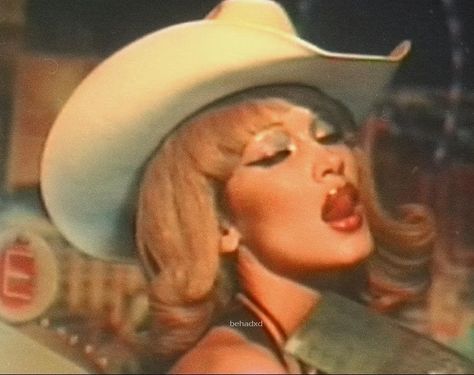
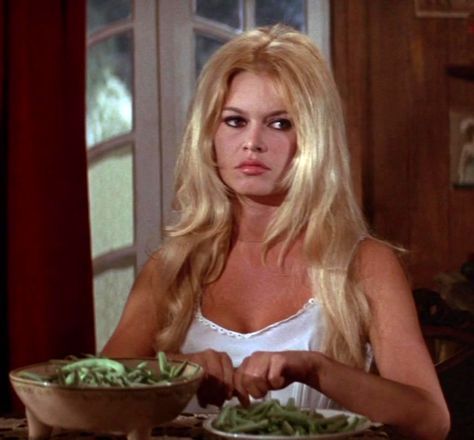
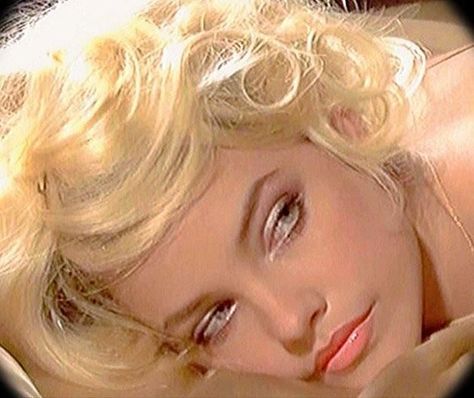
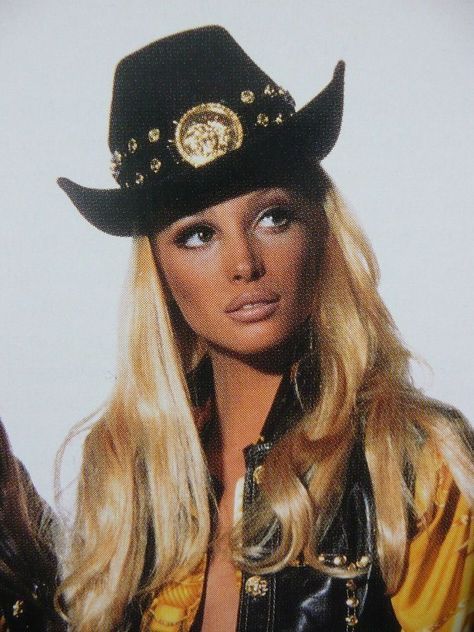
p1 → p2 ↙︎ p3 → p4
🂽 Pile One 🂽 (the devil, 2oC rev., ace of cups rev., 4oW, 3oC, king of swords, the tower, the world)
❖ Pile one, I feel like I’m watching the Game of Thrones out of context. Just flashes of people from around the Medieval 1400s living their day-to-day; singing, dancing, eating together, and then… not.
❖ The imagery I got when I asked what era your beauty came from, was very longing in nature. There was a lot of joy and celebration but it felt like I was watching the film through teary eyes and a heavy heart.
❖ The “movie” flashed between a thriving culture sharing tales of triumph and having happy, drunk sing-song moments together; and then those same people under a war-torn regime of a very cruel but powerful man. I sense themes of religious persecution, nationwide government-forced famine, and general desecration of the once-peaceful way of life. The population was going through collective mourning.
❖ People lamented over their unfulfillable desire to reconnect with their homeland and all of their loved ones. With the World card at the end of the spread and the Empress at the bottom of the deck, I get the clear image that your beauty is the physical embodiment of a large collective’s longing for the sanctity of their community. You invoke that feeling people get when they remember a bitter-sweet memory that hums fervor in their chest and gives them the fire they need to push forward.
❖ Your beauty comes from an era where the genuine smile and cheer of a pretty girl sparked a nation’s hope for reformation. You are the last remaining connection to long-lost celebration and the heart of a forgotten city.
How Do You Paint The Divine Image of Hope?

🂽 Pile Two 🂽 (7oC rev., 4oP rev., full moon, leo, sacral chakra)
❖ WHOOOAAaaaaa Ammberrr is the collluuhhhhh of ya enneergyyy!! WHOoaaA, shades of gaawwllddd displayyy naturraalllyyyyyy…..
❖ Just know I was HOLLERING that. This is my hippie pile. My people. Yea that’s right, I’m talking the late 1960s - early 1970s.
❖ Your beauty arose at a time when society desperately needed color (specifically seeing some of you wearing a lot of bright colors or eye-catching jewelry or hairstyles). The world was bleak and the war’s aftermath on the overall mental and emotional welfare of the general public pushed people to radical ideals and birthed a revolution centered around liberation, pleasure, and community.
❖ Your beauty is all sunshine and rainbows. Psychedelics and organic food. The best music in human history (feel free to argue with me, but know that it is going straight out the other ear, mama) and week-long outdoor festivals full of peace, love, and vulnerability with total strangers.
❖ Your beauty brushes people with the chilling winds of shameless pleasure. The taste of unadulterated personal freedom that is almost a societal taboo. Your beauty is so purely liberating.
❖ Lmao, I imagine a guitar riff going off everytime you walk into a room.
❖ You are the physical embodiment of eccentric love and vivacious rebellion.
Play That Funky Music
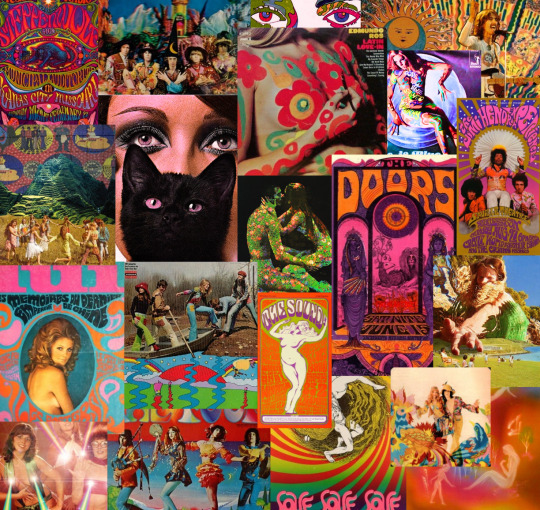
🂽 Pile Three 🂽 (The lovers rev., the High Priestess rev., Ace of Swords., 4oC. 7)
❖ Revolution is a running theme for all of the piles. This collective’s beauty awakens people.
❖ I’m seeing a brilliant man going mad at the lack of creative intelligence around him and pushing for societal rebirth. A complete cultural shift from the Dark Ages (pile one), to modernity. This is my Renaissance pile.
❖ You embody the mystical fusion of art, religion, architecture, and science. You are all the world’s intrinsic beauty rolled up into one figure. You are the art that attracts painters, inventors, and philosophers alike.
❖ You have the beauty of an all-around muse. You invoke the spirit of creative passion. It is like people see you and get a stroke of inspiration. Something that kicks them in the ass and tells them to go outside and create.
❖ This pile is very romantic. A classical beauty, like red roses and bottle poems. The universal innate desire to dream big.
❖ Shoutout to my Aquarians, 11th housers, and Shatabhisha natives.
The Medieval-Modern Muse
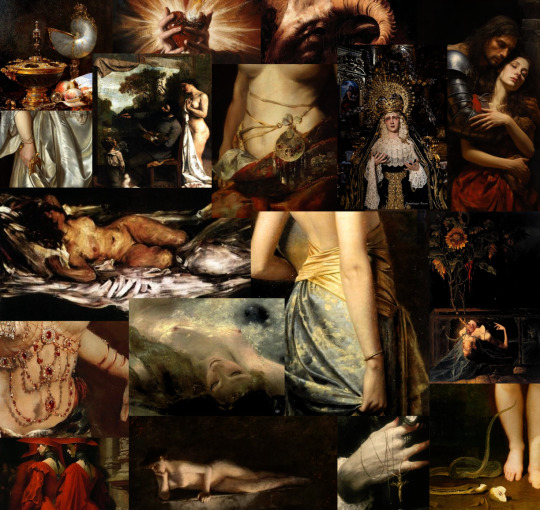
🂽 Pile Four 🂽 (king of pentacles, 2oP, 5oP rev., 9oP)
❖ OKAY PLOTWIST?? I don’t know what era this pile’s beauty is from because it’s set in the future.
❖ It’s funny how the last piles were all set in periods of revolution (putting in the WORK) and your pile, the final pile, is set in a better world full of financial stability, the end of inequality, economic fairness, and universal abundance (the fruits of the labor).
❖ Dude, I was trying to read the message at first and was just scratching my head. I was like, “When has anywhere, literally ever been this good???” Then I saw the ace of wands reversed at the bottom of the deck and saw impending change and it clicked.
❖ I also saw some star semblance, and see that your beauty is a reminder to mankind that the “impossible” is already set in motion. The hell we have created will crumble.
❖ You are a physical embodiment of society’s future triumph. You radiate wealth and fairness. My Venusians, especially Libra. You also look regal, something about you makes people want to stand taller.
❖ You got the pride card, I see that you give people the feeling of victory. You are living proof of future triumph in a better world where greed and sorrow are eradicated.
❖ You are the harbinger of the next era.
Introducing The First Titanium Man On The Moon!
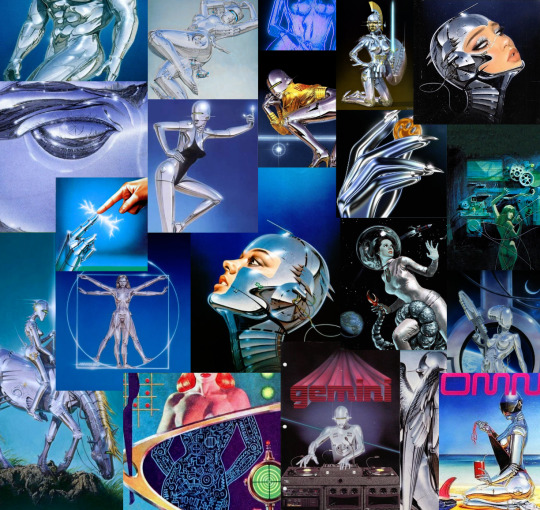
1K notes
·
View notes
Text


AACPUNK
AACpunk is a movement that challenges ableism and promotes the acceptance and inclusion of all forms of communication. It stands for the inclusion of individuals who rely on Augmentative and Alternative Communication (AAC), including nonverbal individuals, neurodivergent people, and those with various communication challenges, whether temporary or permanent. It works to break down barriers such as prohibitive costs, restrictive protocols, and social stigma, ensuring that all individuals have equal access to AAC tools.
Flag meaning
The top blue is representing communication in all its forms
The red is for breaking of barriers, stereotypes and ableism
The light tan-brown for neurodivergence
The gray for self-determination
And the cobalt for free access
Flags by @kpopwerewolf
Person with AAC symbol by @blackholemojis
ALT FLAG
Core Beliefs of AACpunk:
• Communication is a right, not a privilege. No one should be denied access to AAC tools of any kind.
• All communication is valid. Whether someone uses text-to-speech devices, symbol boards, writing, gestures, or any other form of AAC, their voice matters.
• Rejecting ableism in communication. Society often devalues nonverbal and AAC users, treating them as lesser. AACpunk stands against this by demanding equal treatment and respect.
• Breaking barriers to AAC access. Many AAC users struggle to get the tools they need due to cost, medical gatekeeping, or stigma. AACpunk fights for free and open access to communication tools.
• Neurodivergent and disability pride. AACpunk is inherently tied to neurodivergent and disabled liberation, embracing identity without the need for “fixing” or forced conformity to verbal speech norms.
AACpunk is inherently supportive of:
• All individuals with verbal communication challenges, no matter how they express themselves.
• No-tech, low-tech, and high-tech AAC users.
• Individuals who are neurodivergent, disabled, and who choose AAC as their primary means of communication.
• Self-determination in communication choices, without societal pressure to conform to verbal norms.
• Accessible education, workplaces, and social spaces for all individuals, regardless of communication style.
• The ability to communicate anything, even content deemed controversial or inappropriate, including through symbol-based AAC.
• Free access to AAC tools, ensuring that economic barriers do not prevent communication.
AACpunk is inherently against:
• Speech supremacy and verbalism, the belief that spoken language is superior.
• Medical and educational systems that gatekeep access to AAC, preventing people from receiving the tools they need.
• Forced speech therapies and practices that demand conformity to verbal communication norms.
• The infantilization of AAC users, treating them as less than or incapable of making their own choices.
• The exclusion of AAC users from conversations about accessibility, rights, and inclusion.
• Dehumanizing attitudes toward nonverbal individuals and those who use AAC.
#Feel free to make alt flags#AACpunk#flags#flag#flag coining#disability#nonverbal#mogai flag#liom coining#mogai coining#term coining#punk#-punk#nonspeaking#aac user#aac#aac board#aac emoji#aac device#aac communication#aac community#semiverbal#semispeaking#toss! flags#liom term#mogai term#my terms#liomogai#liom safe#autism
291 notes
·
View notes
Text
It feels like not enough people understand this in general so I'll attempt to explain in my own terms:
The notion that "gender" and "biological sex" are different concepts is ahistorical and has done nothing but harm to trans people.
Gender, correctly defined, is one hierarchical axis of a class society in which power, prestige, and wealth accrue disproportionately to one class, which we know as "men" from a number of lower classes, the best known among them being "women" but this is the reality for all genders outside of manhood.
Now, if you know anything about history, you know that the origin of biological sex is in the modern period. "Biological sex" is the reductive, pseudo-scientific narrative produced by the modern era to ascribe the societal system of patriarchal domination as arising from some fundamental, prediscursive biological reality. This is a lie.
The core of labelling "biological sex" is Exactly the same as that of gender: it is looking at a person's body and then ascribing social meaning to their physical features. The source of liberation then is Not in the changing of How we non-consentually read meaning into the bodies of others, but in ending the process of attributing social meaning into Literally All physical features.
1K notes
·
View notes
Text
So many negative reactions to Bell's Hells are a great example of how there's a broad admiration for the aesthetics of punk and watered down versions of rebellious punk philosophies or art, but also broad disgust at punks as people. The kind of folks who feel community in real punk spaces because they're alienated, angry, unpalatable, and have tons of baggage are not welcome elsewhere. Even among people who borrow bits of the aesthetic and listen to (mostly mainstream versions of) the music.
They're abrasive, they're too angry, they disrupt good order, many are mentality ill or neurodivergent or disabled, they're abrasive and like getting a rise out of people, they're not deferential, they're often the kind of queer people who liberally call each other slurs as reclamation and embrace being seen as dirty degenerates, many have substance abuse issues, many have or are experiencing homelessness, unemployment or underemployment or lack of work ambition is common, they're often very disorganized people, arguing and even physical fights are common, they've given up on being likable, and they're done apologizing for their existence. They've usually been alienated and excluded from society for a reason. Punk cultures are about embracing that alienation as a mark of pride instead of smothering themselves to earn being invited back.
But since that's not how people are "supposed" to behave in a "civil" society, they're seen as unacceptable and in need of shunning until they fix themselves. Things like liberty spikes and political jackets are a way to intentionally provoke a negative reaction in people at first glance to screen out those not worth a punk's time trying to be nice to (something Taliesin pointed out directly once). It's like brightly colored frogs warning they're poisonous before anyone even tires to fuck with them.
Frankly, most people do not want to see themselves as square normies enforcing violent expectations on others through exclusion and disgust. Our society worships the idea of the underdog, and everyone wants to view themselves as the the put upon arbiter of true morals being suppressed by bad guys. But it mostly serves to just mask the hegemony of restrictive cultural values about who counts as an acceptable person that deserves to be tolerated and allowed to affect unfolding events. Most people are completely unaware they're doing this because we've been trained to see it as simply having good standards that protect society from the influences of obviously bad people.
Personally I think they did a great job at showing how a particular kind of person in a particular kind of group genuinely react when swept up in that kind of rapid societal change and power. I enjoyed their oppositional messiness and constant renegotiation for the next direct step charming. They had so much character development without giving up who they are or how they most want to be. It wasn't in moments of big revelations, it was thousands of tiny ones between other moments.
Ultimately they just asked those with a massive power imbalance to step down and let mortals have their own agency without that constant control (some benevolent and some harmful but crucially only what the deities want to happen). For the powerful to just become part of the people instead of dominating them. That's a pretty soft outcome overall. Yet still very much a punk fantasy.
219 notes
·
View notes
Text
Your life in the next 3 months

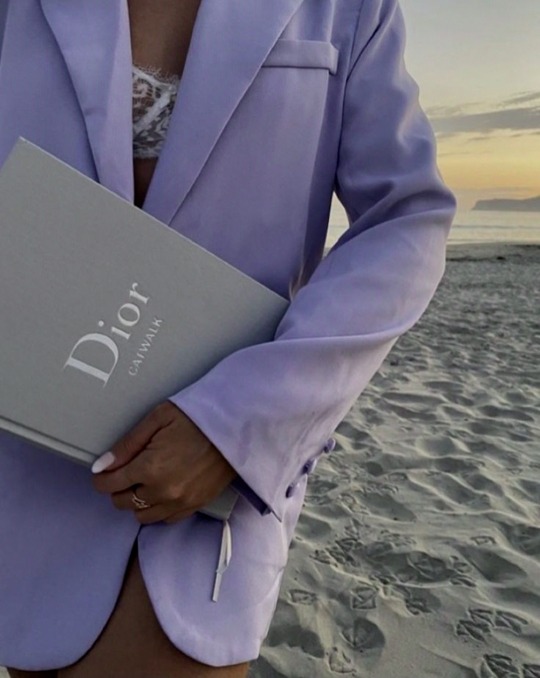
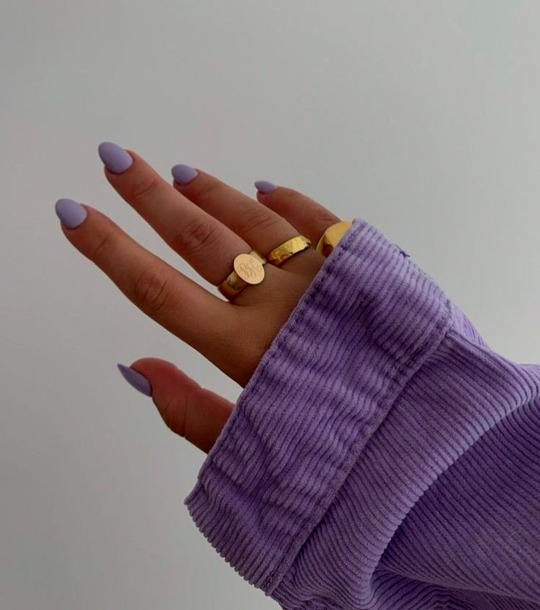


Instagram | Tip Jar | Book a Reading with me now!!
🌸Image 1

You might find yourself grappling with body image issues or feelings of low self-worth, which can often manifest in a preoccupation with your appearance. This focus on looks may lead you to scrutinize every detail of your physical self, from your skin and hair to your fashion choices. As you navigate these feelings, you may become increasingly aware of societal standards of beauty and how they influence your self-perception.
This heightened self-awareness can serve as a double-edged sword; while it may initially lead to feelings of inadequacy, it can also ignite a powerful desire for change. You may begin to seek out ways to enhance your well-being, whether through adopting healthier lifestyle habits, exploring new fashion styles that resonate with your personality, or investing time in self-care practices that nurture your body and mind.
As you embark on this journey of self-discovery and transformation, you may find that embracing your unique features—your skin tone, hair texture, and body shape—becomes a source of empowerment. This process can help you cultivate a deeper appreciation for yourself, allowing you to celebrate your individuality rather than conforming to external expectations.
With each step you take towards self-acceptance, you may notice a shift in your confidence levels. The more you prioritize your health and well-being, the more you may feel empowered to express yourself authentically through your appearance. Ultimately, this journey can lead to a profound sense of liberation, enabling you to embrace your true self with pride and confidence, regardless of societal pressures or beauty standards.

🌸Image 2

I can sense your heart and spirit brimming with an overwhelming sense of joy, happiness, positivity, and optimism. It’s as if you are a vessel overflowing with light, ready to embrace all the wonderful experiences life has to offer. You are wholeheartedly committed to embracing deep joy, allowing it to permeate every aspect of your life. This commitment will guide you toward achieving success in your endeavors, whether they be personal, professional, or creative.
As you journey through this vibrant phase, you will find yourself celebrating victories, both big and small, recognizing the importance of each achievement along the way. You will revel in the abundance that surrounds you, appreciating the richness of life and all the blessings it brings. Your focus on enhancing your health will lead you to make choices that nourish your body and mind, fostering a sense of vitality and well-being that radiates from within.
In addition to these profound pursuits, you will also discover a playful side to yourself, allowing for moments of lightheartedness and fun. This playful spirit will invite joy into your daily life, reminding you to savor the little things and find delight in the present moment.
As the seasons change and summer approaches, you will find that your heart opens even wider, leading you to a deeper connection with your soulmate. This connection will be marked by understanding, love, and shared experiences that enrich your lives together. You will truly feel the magic of companionship, as you both embark on a journey filled with love, laughter, and mutual growth. Embrace this beautiful path ahead, for it is filled with endless possibilities and the promise of a fulfilling life.

🌸Image 3

You will embody tact, diplomacy, and a sense of balance that will shine through in your interactions with everyone around you, be it friends, coworkers, a romantic partner, or family. Your ability to navigate conversations with grace and understanding will create an atmosphere of warmth and openness, allowing others to feel comfortable and valued in your presence. This skill will not only enhance your relationships but also foster a sense of community wherever you go.
I envision you enjoying social gatherings, celebrating with drinks, and relishing reunions with school or college friends. These moments will be filled with laughter, shared memories, and the joy of reconnecting with those who have played significant roles in your life. You will find yourself surrounded by a vibrant circle of friends, each bringing their unique energy and stories to the table, creating an environment that feels both nostalgic and exhilarating.
As you immerse yourself in these lively interactions, you'll find yourself in a state of pure joy, perhaps the happiest you've ever been. The simple pleasures of life—lively conversations, shared meals, and spontaneous adventures—will fill your days with a sense of fulfillment and contentment. You'll discover a renewed appreciation for the connections you have cultivated over the years, and this will deepen your sense of belonging and happiness.
Amidst this lively group, one individual will capture your heart. This person will stand out, drawing you in with their charm, wit, and shared interests. The two of you will feel an undeniable attraction, a magnetic pull that seems to transcend the ordinary. As you spend time together, the chemistry will ignite a whirlwind of passion, romance, and deep connection. You will find yourselves lost in conversations that stretch late into the night, sharing dreams and aspirations, and discovering the beauty of vulnerability in each other’s company.
This blossoming relationship will not only bring excitement but also a profound sense of understanding and support. You will feel seen and appreciated in ways you may not have experienced before, and this connection will encourage you to grow and explore new facets of yourself. Together, you will create cherished memories, embark on adventures, and build a partnership that is both exhilarating and deeply fulfilling. In this journey of love, you will find not just a partner but a confidant, a teammate, and a source of unwavering joy.
#tarot#tarot reading#tarotblr#tarotcommunity#intuitive guidance#intuitive messages#intuitive readings#love reading#pac reading#pick a card reading#tarot pac#intuitive tarot reading#intuitive tarot reader#divination#spirituality#daily tarot
254 notes
·
View notes
Text
thinking about veilguard and bioware in general, i think we are reaching a point where people need to grapple with the inherent limits of what stories can be told in our Current Society and in AAA gaming companies.
on a labour level: mass layoffs, tons of developers leaving despite previously talking about how passionate and happy they were to be involved, not even paying severance, and crunching employees to the point of burnout. this is unfortunately pretty standard for AAA game companies.
on a cultural level: it is SO white and SO centrist-ly Canadian. i wrote up these asks outlining how. it is a repeated pattern of writing in which they go into tortured racial oppression allegories at best, while constantly peppering in a "but BOTH SIDES were wrong and made mistakes :( :( :(", in between their fictional atrocities that are clearly mirroring irl genocides and enslavement. or at worst, it's "the qunari are radical islamic borg" which has even less nuance. i personally thought, since dai came out in 2014, and a lot has changed since then about the world and in public awareness, that this would have filtered into the narrative and resulted in more satisfying and historically grounded writing. unfortunately not the case. it's shocking if you compare it to how sharp and aware and unflinching something like disco elysium is.
so what does this mean?
under these conditions, it is unavoidable that we get development by people who are rapidly cycled out of the company or demoralized into burnout. we get digestible, easy little soundbites of lore without much substance, because any complexity needs more time and coordination rather than the process of "quick, we have these assets, a lot of people involved in making them just got laid off, we need to make Something by next quarter to show the CEO". we get very little cohesion between games, despite the clear intent from dai to have so many plot points set up to follow through in a sequel, because the team and development are so chaotic that they can't hold onto a vision and complete it.
we also get this inherent caution and "conservatism" from the narrative, because on an ideological level, they're largely white people who want cops to be included in pride. so any major change to even a fictional society is Bad and Scary, and shouldn't be done without making sure that every character finger-wags appropriately at non-state violence. there is clearly not much ideological or even ethnic diversity within the leadership; or at least not enough that anyone there felt comfortable even speaking up on minor issues like the Incredibly Orientalist Isabela Outfit, let alone anything larger.
i don't personally think there's too much value in trying to analyze veilguard's plot or lore at this point. the final product is chaotically developed and does not seem to reflect the goals of the creators as set up in prior games, it's basically a ship of theseus in terms of the people and ideas involved in making it. this is sad for all of us, who were interested in the story, and attached to the characters, and were creatively fulfilled by engaging in the fandom. it's probably worse for the developers who have lost their jobs, burnt out, or feel unhappy with the game that they spent years of their life working on. it's certainly miserable as an indictment of The Industry, as well as the general societal climate of white Canadian centrism.
the solution is to create a society where people can develop games in peace and prosperity and stay on projects for longer, rather than constantly getting turfed out without severance pay. and to get some genuine leftists, poc, and indigenous people on staff who can weigh in and provide significant input, rather than a Council Of Liberal White Edmontonians every time.
in the meantime, at the very least, let's please stop preordering AAA games and supporting companies who notably abuse their employees.
#veilguard critical#bioware critical#txt#or...! people get really into godot or renpy or something and create an incredibly high effort unpaid project of dubious legality#if anyone wants to do that blink twice.#really the disappointment about dragon age (to me) is that interactive narratives have so much potential as a method of storytelling#but they did not really even scratch the surface in this one#and probably never will again bc the company seems to be hemorrhaging staff like crazy#if you compare this to something like supergiant games it's wild#they've been retaining their staff for like 15 years and you can SEE them building and progressing from each game and learning from it#and their games are beautiful and incredibly innovative and well written#and from what i know they prioritize work-life balance and refuse to crunch even if it's 'voluntary'#and meanwhile bioware is going from uhhh. me3 to anthem to andromeda to veilguard.#with the crunch being a compounding issue all the way through and probably contributing to a lot of mistakes and talent loss#anyway my only experience in game dev is fooling around by myself on dumb ideas but#i think even just from a general project management perspective it's clear that it's not possible to have good output#under these types of chaotic situations with a lack of leadership and retained knowledge
218 notes
·
View notes
Text
Uranus through the degrees👽
👽Uranus represents rebellion, innovation, sudden change, and liberation. The specific degree Uranus occupies in a chart can add a layer of nuance to how its energy manifests.
0° – The purest expression of Uranian energy: radical, unpredictable, and ahead of its time. A powerful pioneer in societal change and personal breakthroughs.
1° – A sudden awakening or an urge to break away from the past. Strong individuality, but may struggle with authority.
2° – A balance between structure and rebellion. Can introduce unconventional ideas in practical ways.
3° – Highly intellectual and innovative, with an almost futuristic way of thinking. Can be erratic in decision-making.
4° – A deep urge to challenge norms while creating new foundations. Often linked to alternative lifestyles.
5° – Restless and experimental. May change career paths or personal philosophies abruptly.
6° – A revolutionary mindset with a humanitarian focus. Likely to be drawn to technology, social justice, or alternative medicine.
7° – Strongly intuitive and possibly clairvoyant. Can channel Uranian energy into artistic or spiritual breakthroughs.
8° – Fiercely independent with a rebellious streak. Doesn’t conform easily but has a unique leadership style.
9° – A visionary degree. Can foresee trends before they happen and often acts as a catalyst for societal shifts.
10° – A mix of genius and unpredictability. May struggle with consistency but thrives in creative or scientific fields.
11° – The “Master Number” energy amplifies Uranus’ innovative and electric qualities. Often a game-changer in their field.
12° – A highly intuitive disruptor. Feels compelled to challenge outdated traditions.
13° – Known as a degree of transformation, often bringing sudden upheavals that lead to long-term progress.
14° – Creative genius with a rebellious edge. May be drawn to experimental art or alternative technology.
15° – A strong-willed disruptor, but can also be stubborn. Seeks radical independence.
16° – Often brings unexpected success through unconventional means. May experience sudden life shifts.
17° – Associated with breakthroughs in communication, media, and futuristic thinking.
18° – Can be a “lightning rod” for change, drawing chaos but also profound innovation.
19° – Balances rebellion with responsibility. Often takes on leadership roles in unconventional movements.
20° – A degree of heightened awareness and spiritual awakening. Uranus here can indicate a unique life purpose.
21° – Drawn to utopian ideals and progressive social movements. Can be eccentric but deeply inspiring.
22° – The “Master Builder” degree combines Uranian genius with practicality, leading to tangible innovations.
23° – A wild card degree. Experiences sudden reversals of fortune but always lands on their feet.
24° – Can be a bridge between the past and future, blending old traditions with modern ideas.
25° – Highly eccentric and independent, often rejecting conventional life paths.
26° – Genius in technology, astrology, or metaphysical studies. May have a talent for predicting societal shifts.
27° – A revolutionary thinker who thrives in periods of change. Often ahead of their time.
28° – Associated with radical enlightenment. Can be a guide or teacher in alternative fields.
29° – The “Anaretic Degree” (critical degree) of Uranus intensifies its erratic and unpredictable nature. Often brings shocking life events or a last-minute awakening before a major transformation.
#astro notes#astrology#birth chart#astro observations#astro community#astrology observations#astrology degrees
1K notes
·
View notes
Text
I remember when a friend asked during a tense conversation about feminism whether I “supported stay-at-home mothers” (and I assume housewives). I wish I’d known better how to respond then; I did the usual thing of speaking to systemic forces rendering some options for women less viable; I made it all about the language of choice and how it hides processes that limit one’s choices.
it’s a fine answer, it’s not wrong. but ultimately it ignores something very important, and that is that SAH mothers and housewives are adults who are entirely economically dependent on another adult, or other adults, in order to get the things they require to survive (food, shelter, in some cases medical care, etc)—and no, I can’t support this. any society that is set up for a significant amount of that society’s adults to be entirely dependent on the whims of other adults to survive is a sick society.
that the society isn’t set up to be able to handle child-rearing in any other way is also evidence that it is oppressive, that it’s sick. I’m not in denial that raising children itself is a full-time job, but I am aware that there are reasons certain adults are called upon to do it and not others, I am aware that the society doesn’t encourage an organisation in which multiple people can raise a child, or that one person can for a while, another later, etc. it’s also unpaid; or rather, in marxian terms, it’s paid for by the working adult, who gives money to the other or else directly buys them what they require to survive. this is making a child of an adult, who in many cases is perfectly capable of handling money and earning money, and thus controlling how they access things crucial to survive.
so no, I don’t ‘support’ a society that is organised to allow the infantilisation of half its adults, even one that has developed itself to the point where those adults are now legally free to become wage-labourers, so long as the patriarchal mechanisms that ensure at least some of them, or them (women) far more often than any others (men), are the ones giving up their financial independence and access to resources needed to live. this is a dangerous, precarious way to live, and no one should have to lie about that. it’s absolutely not the SAH mothers’, or housewives’ fault; I don’t personally blame them. but it isn’t true that this is a neutral, let alone good, ‘decision’. it’s actually deeply disturbing, and the idea it’s feminists infantilising these women, saying they shouldn’t be allowed the ‘choice’ to give up their entire financial independence, rather than a societal structure that makes women more likely to be forced into making this ‘decision’ to become effective children dependent on another adult to survive, is an inaccurate and antifeminist construction. beyond its obviously being a symptom of liberal-capitalist brainwashing, with all its empty talk of ‘freedom of choice for the individual’ etc.
160 notes
·
View notes